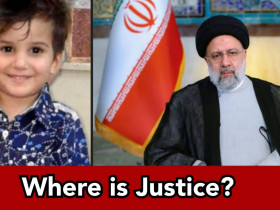No products in the cart.
Indian employee’s casual leave letter to Boss leaves the netizens in splits, catch details
It is amusing to see how something as small as an email style can create such a huge debate online. Yes, recently, a screenshot of an email from a Gen Z employee notifying their boss of an upcoming leave has stirred up a big discussion on social media.
Investor by the name of Siddharth Shah posted the screenshot on X (formerly Twitter), humorously captioning it, “How my Gen Z team gets its leaves approved.”

The email has a notably different tone from traditional leave requests. Instead of formally requesting time off, the employee takes a straightforward approach: they directly inform Shah of their plan to be away without offering an explanation or asking for permission. The email simply states, “Hi Siddharth, I will be on leave on 8th November 2024. Bye.”
how my gen z team gets its leaves approved pic.twitter.com/RzmsSZs3ol
— Siddharth Shah (@siddharthshahx) November 5, 2024
Since its posting, the screenshot has amassed over 1.2 million views and hundreds of comments, with opinions deeply divided on this informal approach. For some, it reflects a refreshing shift in work culture, while for others, it comes across as unprofessional.
In the comments, reactions were mixed. Some professionals admitted they’d be shocked if they received such a blunt message. Others, however, embraced the casual tone, arguing that employees shouldn’t need to justify their reasons for taking a day off—it’s their right.
One user commented, “If I had sent this message to my manager, he would have scheduled a meeting with HR to discuss my behavior issues.” On the other hand, another user said, “Normalize this. People shouldn’t have to give reasons if they want to take an off. It’s their right.”
As the post continues to spread, it’s clear this seemingly simple email has touched on a larger debate: Are traditional formalities in the workplace outdated, or do they still hold value? Whatever the answer, this Gen Z employee’s email has certainly brought workplace culture into the spotlight.
The email is both bold and hilariously to-the-point. Instead of the usual polite request, it reads more like a friendly FYI—with the casual “Bye” at the end adding to the humor.
This tiny message has unintentionally become a perfect snapshot of the changing work dynamics between generations. It’s funny because it feels so unexpected in a professional setting, yet there’s a refreshing honesty to it that makes you think, “Why not?”








